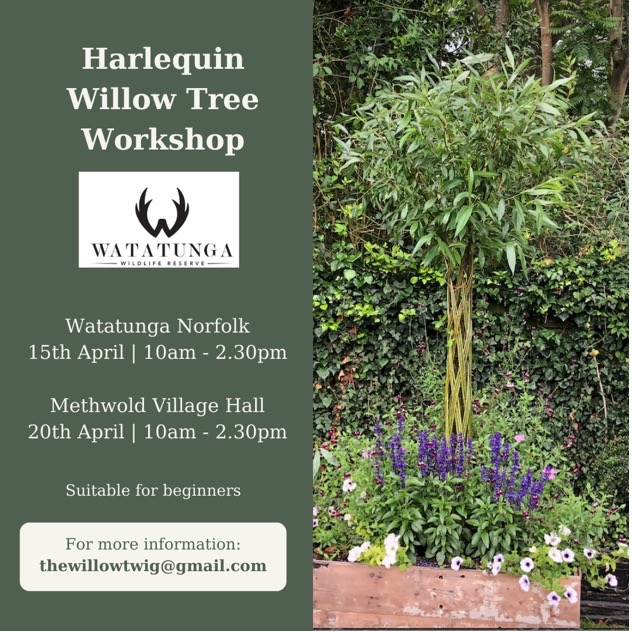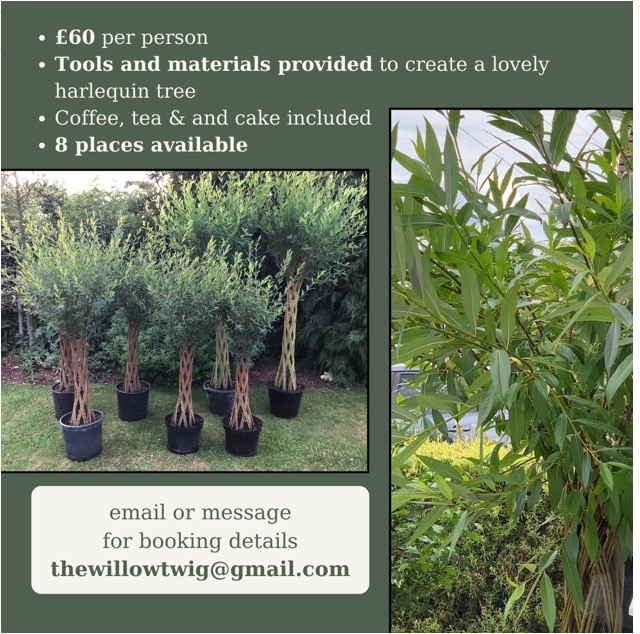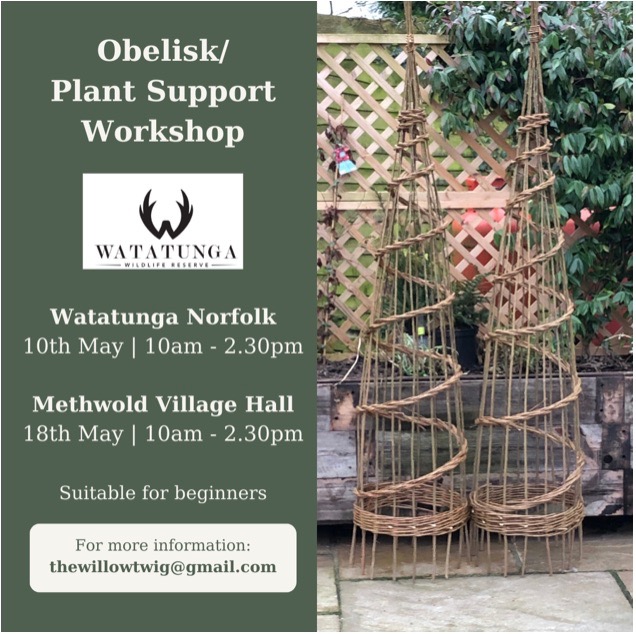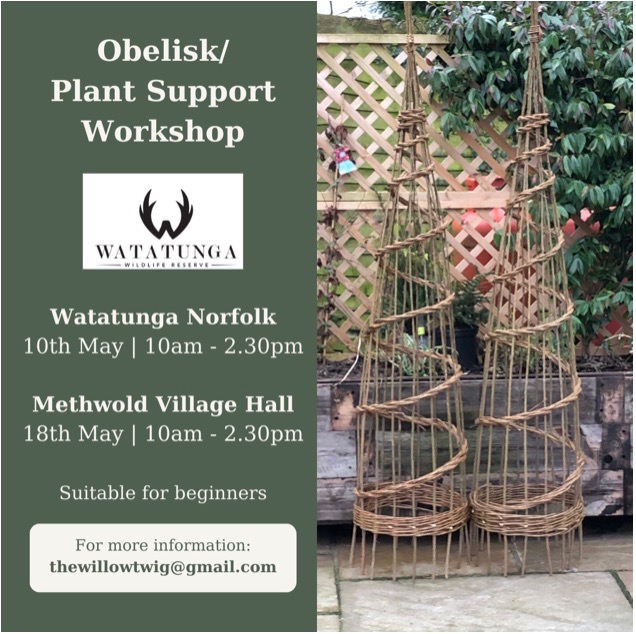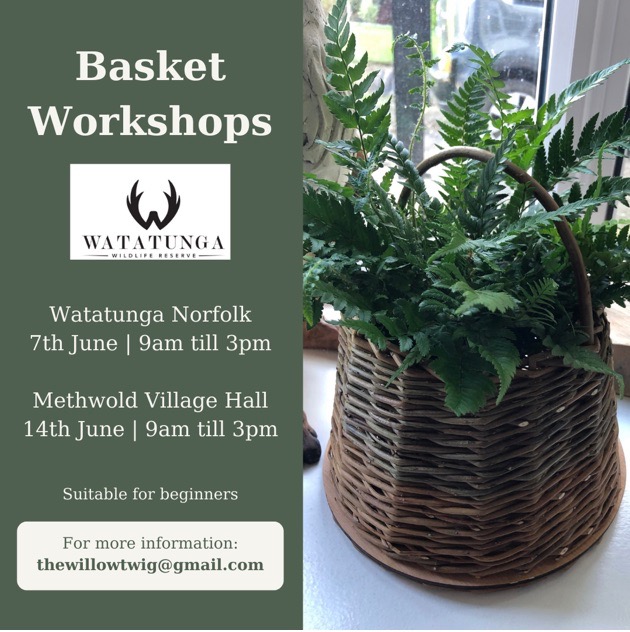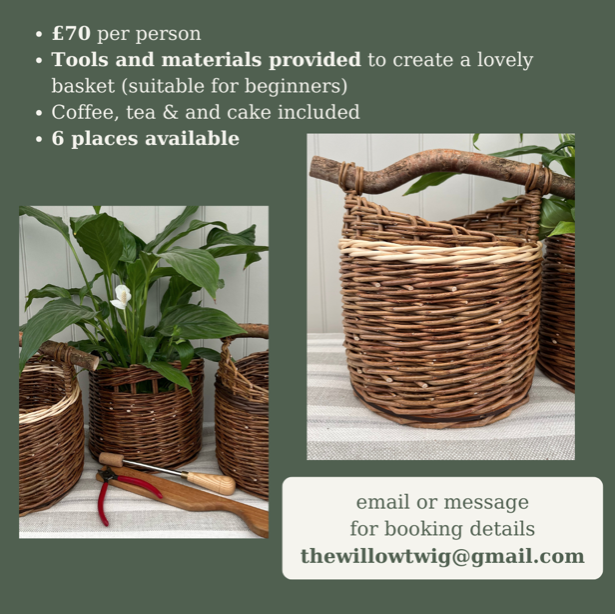Wat-willow weavers
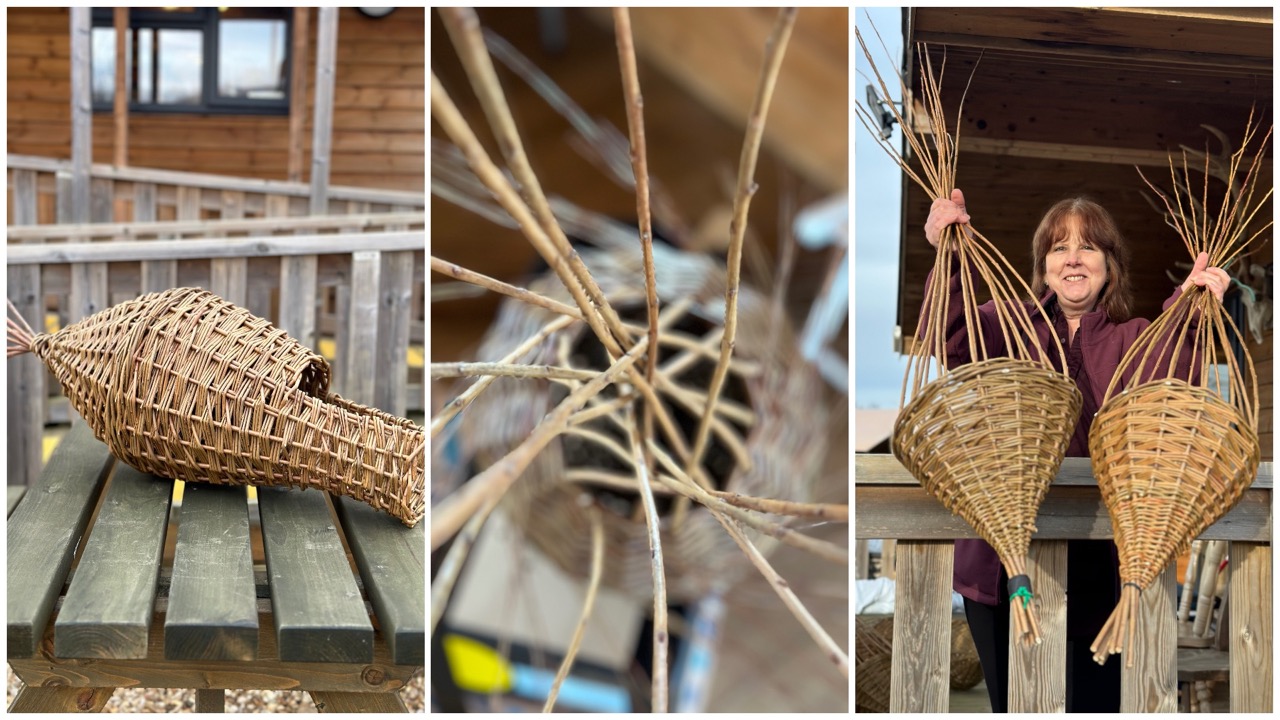
I first saw hedge-layers at work in Ireland as a child and watched as their methodical craftmanship yielded solid, neatly rhythmical horizons to the patchwork quilt of Ulster’s fields – I’ve been fascinated by weaving ever since. If you’ve always wondered about willow, do check out Jean’s upcoming workshops here at Watatunga at the bottom of this page. To find out about the mysterious objects we were making, read on!
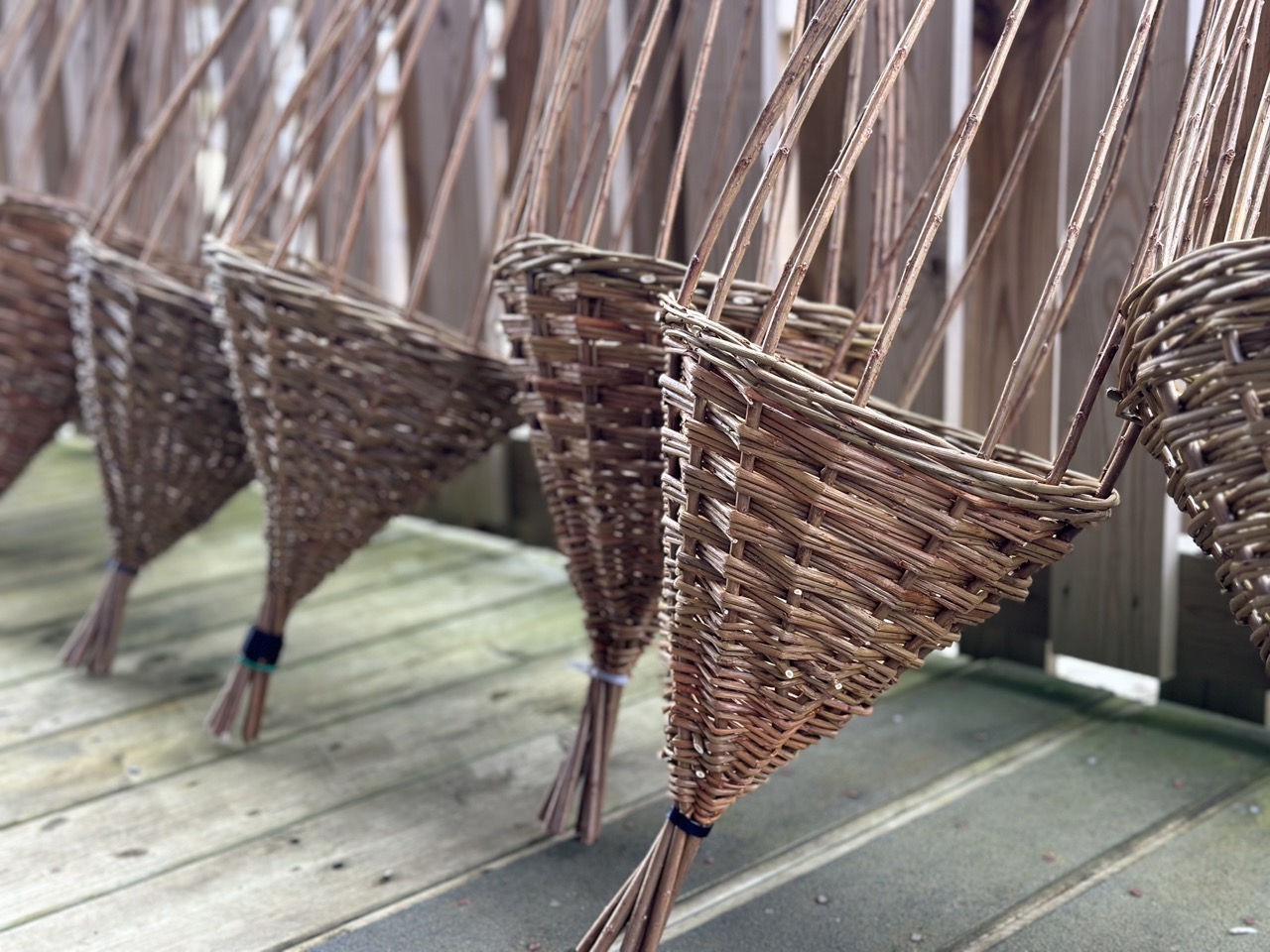
The craft of willow weaving is having a bit of a renaissance and Norfolk is home to many wonderful teachers constructing obelisks for sweet-pea, foraging baskets, harlequin trees and any number of willow dragonflies, pheasants or hares. Yet I hadn’t come across anyone weaving duck nesting boxes and so last year I contacted Jean Shore of The Willow Twig and asked whether she thought the idea was madness – or even possible. Anything it turns out is possible with enough careful thought from a pro like Jean.
And so, as winter draws to a close and the team rev up for a new season, it seemed the perfect moment to come together for cake and conversation – and to contemplate the love life of ducks and whether they were likely to appreciate our efforts.
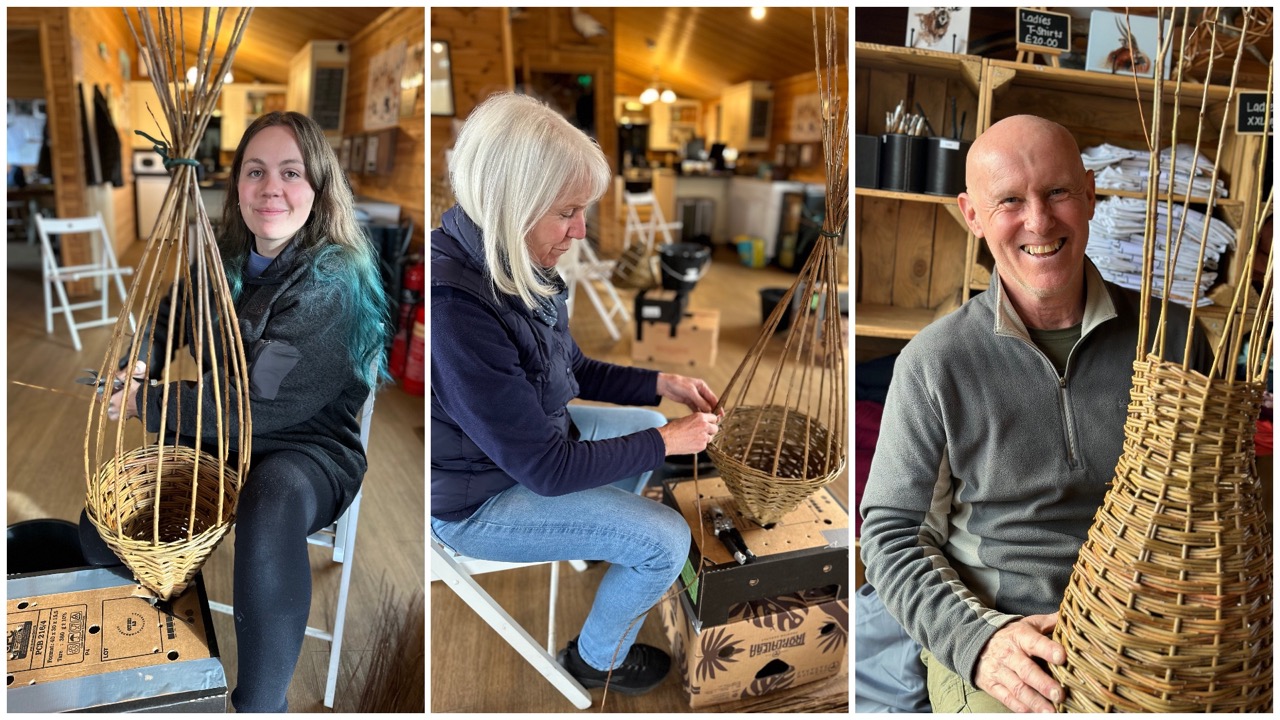
Now we haven’t had huge luck with the duck nesting boxes we had used before, and so this was rather a leap of faith – but nothing like the leap it turns out the speculative ducklings will make when they leave these palatial nests. Watatunga is home to several tree-nesting ducks, but many of our other species will look to nest near open water, where there is plenty of food. They’ll seek out a spot with natural cover such as a tree with a hole in it and the crafty Watatunga fowl have even tried out a corner of the lakeside stretch-tent for the ultimate in luxury nesting.
With the water level so high and the rain showing no sign of ceasing, we’re keen to give them some options this year. And so, six of us got weaving and wondering about the wonderful names of the willow varieties we used; Black Maul, Dicky Meadows, Old French and Whissender. Jean does not do things by halves – her tuition is thorough and generous – she prepared everything necessary to ensure that even the most muddly of fingers could succeed and have fun while also learning a huge amount about her addictive craft. From soaking the willow according to the time of year, to different ‘slews’ (a type of weave), we eagerly absorbed her knowledge while we worked and she was always available to correct and cajole our wayward whips back into shape when needed.
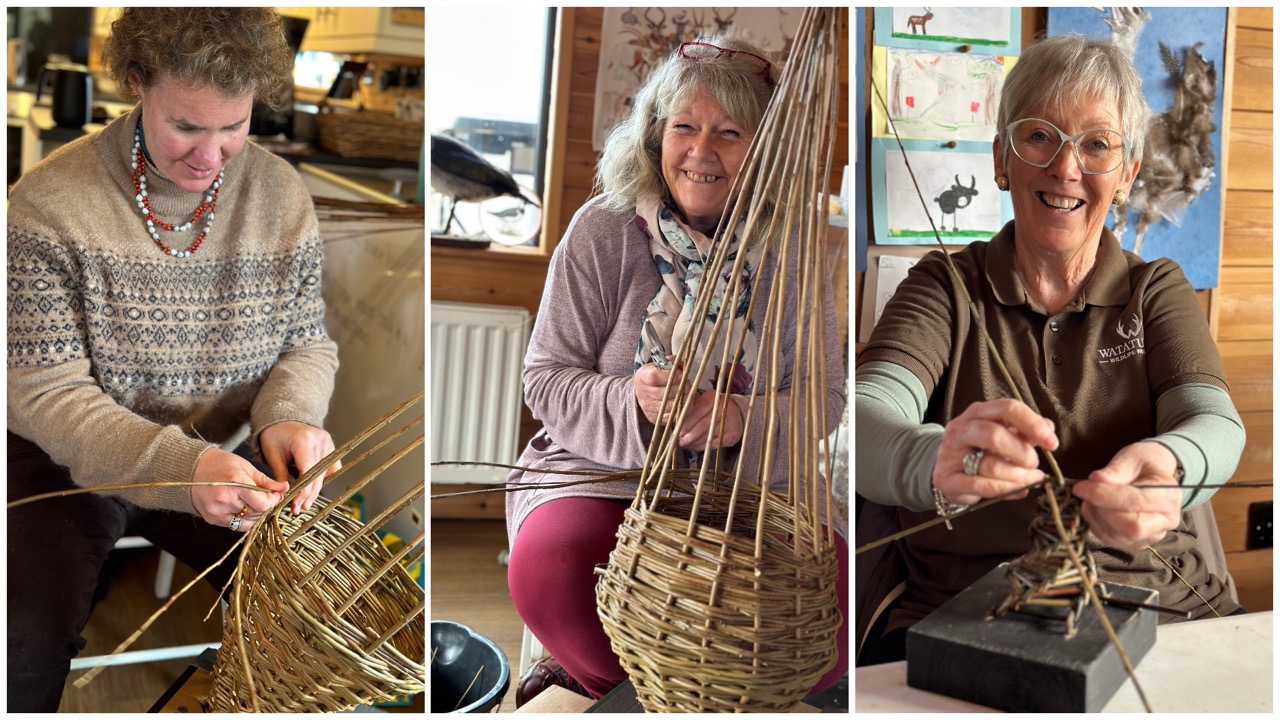
And if you’d like to try your hand at willow-weaving please do sign up for a workshop here with Jean this spring.
Available workshops:
Harlequin Willow Tree Workshop – 15th April 10 a.m.- 2.30 p.m. at Watatunga Wildlife Reserve – £60.00 per person max. 8 ppl
Obelisk/Plant Support Workshop – 10th May 10 a.m.- 2.30 p.m. at Watatunga Wildlife Reserve – £60.00 per person max 8 ppl.
Basket Workshop – 7th June 9 a.m.- 3.00 p.m. at Watatunga Wildlife Reserve – £70.00 per person max 6 ppl.
Each of these workshops are suitable for beginners and tea, coffee and cake are included.
For more information and booking, please email thewillowtwig@gmail.com
